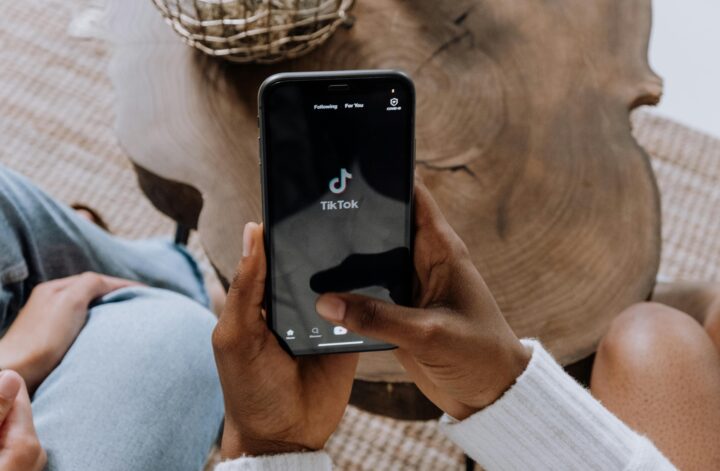In the ever-evolving world of social media, TikTok has quickly emerged as a game-changer in the music industry. Since its launch in 2016, the platform has transformed the way people discover, engage with, and consume music. With its emphasis on short-form video content, TikTok has provided both established artists and up-and-coming musicians with an unprecedented opportunity to reach massive audiences and go viral. This shift in how music is shared and experienced is not only changing the way songs rise to the top of the charts but also how music is created, marketed, and consumed. As we move further into the 2020s, TikTok’s influence on the music industry continues to grow, reshaping its landscape in profound and lasting ways.
TikTok and the Rise of the Viral Hit
One of the most notable changes TikTok has brought to the music industry is the speed at which songs can go viral. Unlike traditional music promotion methods, where artists rely on radio play, streaming services, and major label campaigns to generate buzz, TikTok allows songs to gain traction in an organic and often unpredictable manner. A catchy hook, a relatable lyric, or an unforgettable beat can be the catalyst for a song’s success, as TikTok users incorporate it into their videos, creating challenges, memes, and trends.
The platform’s algorithm, which prioritizes content based on user engagement rather than follower count, means that even lesser-known artists have the chance to break through and become household names. A song doesn’t need to be promoted through conventional channels to go viral; it simply needs to resonate with TikTok users. This democratization of music promotion has given rise to numerous artists who may have otherwise struggled to get noticed. For example, in 2020, the song “Savage Love” by Jawsh 685 and Jason Derulo exploded on TikTok thanks to a viral dance challenge, leading to it becoming a chart-topping hit worldwide. Similarly, Lil Nas X’s “Old Town Road” became a global phenomenon after users on TikTok adopted it for a variety of video formats, catapulting the track to the top of the Billboard Hot 100 for a record-breaking 19 weeks.
The viral nature of TikTok not only accelerates the success of songs but also changes how artists and record labels approach their music releases. With the potential for a song to go viral on TikTok, artists are now more focused on creating music that’s shareable and easily adaptable to trends, rather than following traditional industry norms. This has led to an increased focus on creating music with catchy hooks and memorable moments that work well in short video formats. Songs that fit TikTok’s culture of quick, punchy content often have a greater chance of gaining traction, which has shifted the traditional music release cycle and promotional strategies.
TikTok as a Music Discovery Platform
TikTok has rapidly become one of the most important platforms for music discovery. While streaming services like Spotify and Apple Music still dominate the music consumption landscape, TikTok’s ability to introduce new music to listeners in a way that feels personal and authentic is unmatched. The platform’s “For You” page, which curates content based on user behavior and preferences, allows songs to reach users who might not have heard them elsewhere. With millions of videos posted daily, TikTok’s algorithm helps surface tracks that may not yet be widely known, giving them the opportunity to go viral through user-generated content.
In 2024, TikTok continues to be a key player in how people discover new artists and tracks. Users are not just passively listening to music; they are actively engaging with it by creating their own videos that incorporate specific songs. Whether it’s through dancing, lip-syncing, or acting out a scenario, TikTok users are becoming co-creators in the music experience. This collaborative element has given artists a unique platform to gauge immediate reactions to their music and gauge which songs resonate with audiences. For some artists, TikTok can become a powerful tool to quickly grow a fanbase.
For emerging artists, TikTok’s role in music discovery is invaluable. Many new acts have leveraged the platform to introduce their music to a global audience. The ease with which users can share songs means that even a small clip of a song can go viral, giving an unknown artist the exposure needed to kickstart their career. A perfect example is the rise of artists like Doja Cat, whose songs were propelled to success by viral trends on the platform, turning them into global stars seemingly overnight. In a world where radio play is no longer the sole measure of success, TikTok has filled the void by giving music an immediate, grassroots avenue to spread.
TikTok’s Influence on Music Trends and Genres
TikTok has become a breeding ground for new music trends and even entirely new genres. Users are quick to pick up on catchy beats, clever lyrics, and unique sounds, which can create viral moments and shape the direction of music. Trends often evolve organically, with people putting their own spin on a song, creating a ripple effect that influences what kind of music is heard across the platform.
In particular, genres that are well-suited to the short-form nature of TikTok videos have gained a significant boost. Genres like hip hop, pop, and electronic music have been particularly successful on the platform, with songs featuring strong, identifiable hooks or beats that work well with dance challenges and viral videos. In recent years, niche genres such as hyperpop, indie pop, and lo-fi beats have also found a home on TikTok, thanks to the platform’s ability to cater to diverse musical tastes. Artists in these genres can build dedicated followings through their TikTok content, even if their music is not yet mainstream.
Furthermore, TikTok has contributed to the resurgence of older songs, as users rediscover and recontextualize music from different eras. For instance, Fleetwood Mac’s “Dreams” experienced a resurgence in popularity after a viral video featuring a TikTok user sipping cranberry juice while skateboarding to the track. This phenomenon highlights TikTok’s unique power to revive songs and introduce them to a younger generation of listeners who may not have encountered them otherwise. It also demonstrates how the platform can act as a cultural time capsule, bringing back forgotten hits in a new light.
The Business Side: How TikTok is Shaping the Industry
For record labels, artists, and even influencers, TikTok’s impact on the music business cannot be overstated. Record labels are now looking at TikTok analytics as an essential part of their decision-making process when it comes to which songs to push. A viral TikTok trend can significantly boost streams and downloads on platforms like Spotify and Apple Music, and even lead to higher ticket sales for live performances. As a result, artists are increasingly looking to TikTok as a primary source of marketing and exposure.
TikTok is also influencing how artists release their music. In the past, music was often dropped in full albums or singles, but the short-form nature of TikTok has led some artists to release individual parts of a song, such as a catchy chorus or specific verse, to gauge interest before a full release. This strategy allows artists to build anticipation and generate momentum even before the official launch of their music.
The platform also offers brands new opportunities to collaborate with artists and leverage music in marketing campaigns. TikTok’s integration with branded content allows companies to partner with artists to promote songs through creative, engaging challenges. This symbiotic relationship between artists, brands, and TikTok has opened up new revenue streams, further solidifying the platform’s role in shaping the music industry’s business model.
The Future of TikTok and Music
As TikTok continues to influence the music industry, it’s clear that its role in shaping how we discover, enjoy, and consume music is only going to grow. In 2024, TikTok is not just a platform for viral moments but a vital part of the music ecosystem. From emerging artists breaking through to the way trends and genres are born, TikTok has completely altered the traditional music industry model.
Looking ahead, it’s likely that TikTok will continue to evolve and adapt, finding new ways to empower both artists and fans. As music trends shift and new viral moments unfold, one thing is certain: TikTok will remain at the forefront of how music is shared, experienced, and celebrated in the digital age. For artists, record labels, and music lovers alike, the platform is shaping the future of music in ways that are both exciting and unpredictable.




